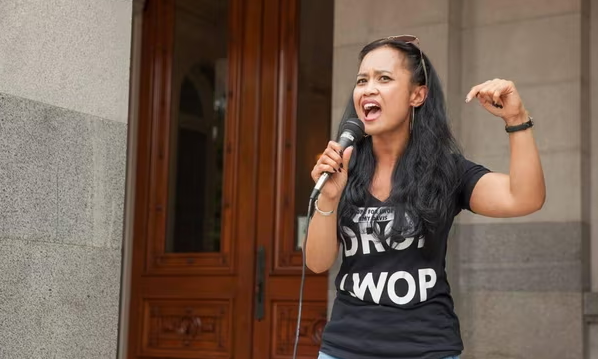Critical Stage in Fight to End Death By Incarceration - UN Expert
Finding comes after recent report from UN Human Rights Committee calling on US to consider a moratorium on all LWOP sentences

Last week, the United Nations special rapporteur on racism issued a powerful statement: the United States makes it way too easy for people to receive death-by-incarceration prison sentences, especially Black and Latino people and women who are criminalized in the context of domestic violence. "Without the chance of parole," the statement said, the prison system negates any stated purpose of rehabilitation, "reducing it to a tool of segregation and exploitation."
The finding comes on the heels of a recent delegation to Geneva, Switzerland, where nearly two dozen advocates and attorneys, the majority directly impacted by death-by-incarceration sentencing (DBI), demanded the UN Human Rights Committee recognize these sentencing schemes as cruel and inhuman, amounting to torture and racial discrimination in violation of international human rights laws. The Committee agreed, calling on the United States for the first time to consider a moratorium on all life-without-parole (LWOP) sentences. They also emphasized for the first time the importance of parole eligibility for all incarcerated individuals, irrespective of age or the crime committed.
This is not the first time the issue has been brought before the United Nations. In 2014, when the US last had its human rights record reviewed, the Committee recommended that the US abolish the sentence of LWOP for children and the mandatory and non-homicide-related sentence of LWOP for all. But international consensus is growing that the US should stop sentencing people to die in prison altogether.
Stanley “Jamel” Bellamy, New York City Organizer for the Release Aging People in Prison Campaign (RAPP) and a survivor of a death-by-incarceration sentence, said, “It is incumbent on the United States to heed the call of multiple United Nations mechanisms to correct its violations of basic human rights in routinely sentencing people, at both the federal and state level, to death by incarceration. Prison terms that exceed a person’s life expectancy are a form of torture. When I was sentenced at age 24 to die in prison, the state deprived me of the right to hope, and it was only through the extremely rare granting of clemency by our state’s governor that I was able to rejoin the community and attend the United Nations convening and advocate for the countless honorable women, men, and non-binary people I left behind."
RAPP joined with Abolitionist Law Center, Amistad Law Project, California Coalition for Women Prisoners, DROP LWOP Coalition, the Coalition to Abolish Death by Incarceration, The Visiting Room Project, and the Center for Constitutional Rights to file its original complaint with the special rapporteur on racism in September 2022, and followed up by engaging with the Independent Expert Mechanism to Advance Racial Justice and Equality in the context of Law Enforcement, which called on the US to end death-by-incarceration sentencing. The coalition then submitted this shadow report ahead of the human rights review in Geneva.
During the UN’s latest visit to the US, incarcerated and formerly incarcerated coalition members met with officials in California and Louisiana to continue sharing testimony detailing the devastating impacts of death by incarceration. One of them was Ny Nourn, a member of California Coalition for Women Prisoners and Co-Executive Director of the Asian Prisoner Support Committee. Nourn moved from Cambodia to the US as a child, and ended up in an abusive relationship that led to a man’s murder. She was sentenced to life without parole at age 21.
“Many of the issues being looked at by the UN—racism, xenophobia, gender violence, poverty, colonialism, etc.—intersected in my own life, making me and many incarcerated people who have survived domestic violence and state violence vulnerable to extreme sentences that target our marginalized communities,” said Nourn. “Death-by-incarceration does not make us any safer. It’s time for legislators, governors, and courts to do everything in their power to affirm that DBI is unconstitutional, provide commutations and parole-eligibility to those currently serving DBI sentences, and change policies that address racial injustice moving forward.”










